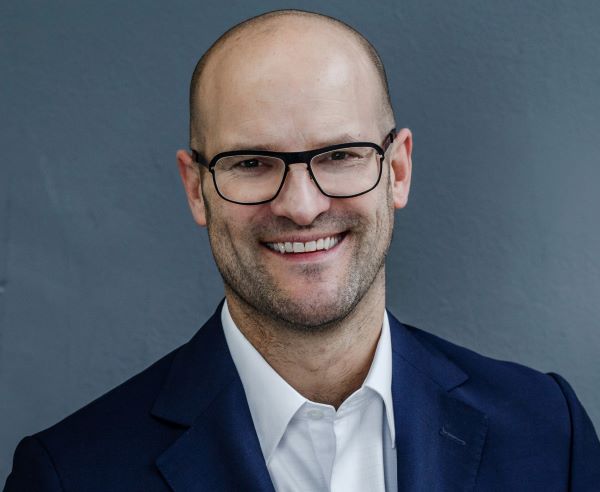A Geoenergy revolution beneath our feet

Why it matters?
The transition to a sustainable future hinges on innovative solutions that address the pressing challenges of anthropogenic climate change. Central to this shift is the development of technologies such as carbon capture and storage (CCS) and geothermal energy production, but also hydrogen as a source of energy which might directly be produced from or temporarily stored in subsurface formations. These approaches are pivotal in reducing our reliance on fossil fuels, the primary drivers of global warming, and in cutting down the carbon footprint of energy production.
The significance of advancing these technologies lies not only in their potential to mitigate environmental impacts but also in their ability to secure a stable, clean energy supply for future generations. This focus on sustainable geosciences and subsurface engineering is crucial for achieving net-zero carbon emissions, showcasing a commitment to a more sustainable world. By integrating scientific innovation with practical applications, the field is not just advancing knowledge but is actively contributing to the creation of real-world solutions that promise a sustainable future for all.
Collaborate to innovate
Andreas Busch's pioneering work in GeoEnergy research epitomises the essence of collaborative innovation, blending academic rigor with practical application. Two notable projects underpin this ethos: De-risking CO2 and Hydrogen storage is a long-standing research focus involving many academic and industry partners. The aim is to understand geological risks in subsurface storage by integrating laboratory, field, and modelling research. Similarly, his involvement in the NERC funded GWatt project exemplifies cross-disciplinary collaboration aimed at understanding deep geothermal energy production from granites in Cornwall, SE England. These examples underscore Busch's commitment to fostering industry-academia partnerships, driving forward the technologies crucial for environmental sustainability.
As well as serving as the academic co-lead for the Lyell Centre and leading the GeoEnergy research group, Professor Andreas Busch is the academic theme lead for GeoEnergy within the iNetZ+ GRI, Heriot Watt's global research institute focussed on achieving Net Zero carbon emissions and beyond. His current research focuses on sustainable geosciences solutions, particularly at the intersection of subsurface engineering. By understanding coupled processes in the subsurface, he aims to predict risks and effectiveness, contributing significantly to the energy transition and the path towards Net Zero carbon emissions.
"Being part of Heriot-Watt University's Global Research Institutes allows us to tackle the pressing challenges of today from achieving net-zero carbon emissions through interdisciplinary collaboration to understanding how the subsurface can contribute to these immense challenges. Our work in pioneering technologies like CCS, underground hydrogen storage, and geothermal energy is crucial for a sustainable energy transition. This initiative represents a commitment to innovative, practical solutions that significantly reduce our environmental impact, ensuring a more sustainable world for future generations. It's about combining expertise to effect real change, and that's why I'm deeply involved."
Professor Andreas Busch, co-Academic Lead at the Lyell Centre & GeoEnergy Theme Lead, iNetZ+ Net Zero Global Research Institute, Heriot-Watt University.
Solving Real-World Issues
The impact of this research extends beyond advancing scientific understanding; it's about practical, real-world implementation. The work significantly contributes to progressing CCS, geothermal, and underground hydrogen storage technologies, crucial pillars for a sustainable future. The key to this lies in the tangible strides made towards decarbonising our energy systems.
Addressing challenges inherent in his research, Professor Busch champions innovative methods and technologies. By integrating various subsurface geoscience and engineering disciplines through the global research institute, and collaborating with industry partners, his approach emphasizes both fundamental understanding and practical applicability, ensuring real-world solutions. This fosters impactful outcomes, enhancing both fundamental understanding and applied solutions.
The Future of Energy
Looking ahead, Professor Busch envisions a future where CCS sees large-scale implementation globally. His focus will shift towards subsurface hydrogen storage and geothermal energy, aligning with Heriot-Watt's ambition to develop a geothermal case on campus, contributing to the university's own Net Zero goals.
Integrating research into teaching, Professor Busch provides students with a holistic understanding of their field. Through research-led teaching, he prepares students for their professional lives, connecting theory with practical applications. Professor Busch is driven by the opportunity to work with students, bridging the gap between academia and industry, stemming from his belief that students benefit greatly from exposure to real-world challenges. His academic journey reflects this commitment, ensuring that research not only advances knowledge but also addresses pressing global issues.
Leading Expertise
Professor Andreas Busch has a distinguished academic journey spanning continents and disciplines. With degrees in Geosciences from South Africa and Germany, including a PhD and Habilitation, Andreas embarked on a career that led him through academic and industry research roles at RWTH Aachen University and Shell Global Solutions before finding his home at Heriot-Watt University.
Key information
Andreas Busch
- Job title
- Professor
- a.busch@hw.ac.uk